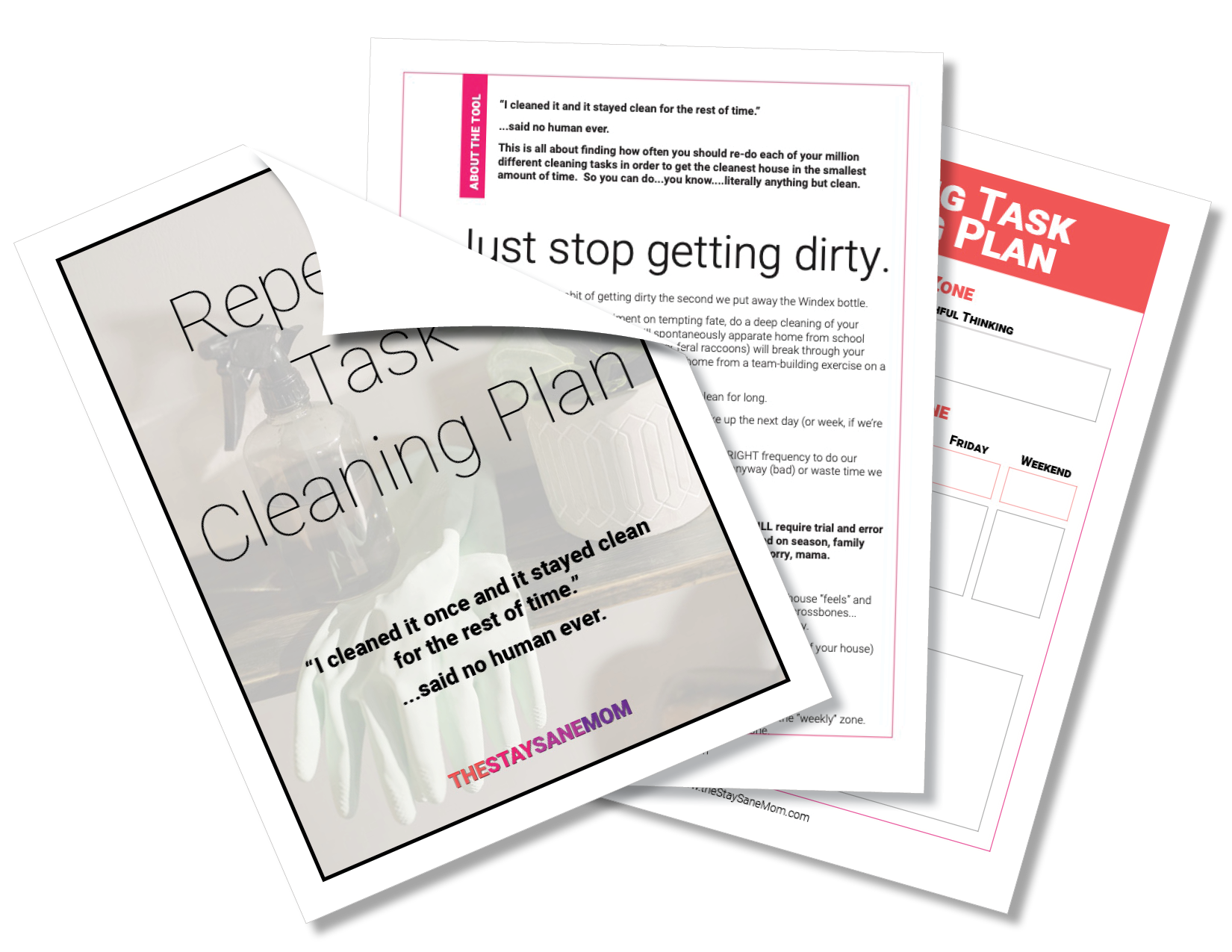3 Simple Steps Towards Zen Simplicity

3 Simple Steps Towards Zen Simplicity
Technology is a miraculous thing, but it has made our lives immensely more complicated. Here are some ways to simplify your life and bring more peace to your house.
Written by Liz Bayardelle, PhD | See Comments | Updated 08/25/2019
Want to cut to the chase?
Repeating Item Cleaning Plan

3 Simple Steps Towards Zen Simplicity
This post contains some affiliate links for your convenience. Click here to read my full disclosure policy.
On the one hand, we’re all lucky to live in the 21st century.
Never before in human history has there been so much material wealth spread around so broadly, not to mention such easy access to tasty food, effective medical treatment, and all sorts of incredible entertainment devices and options.
Oh, and did I mention that we all carry around in our pockets the entirety of collective human knowledge on a cassette-tape-sized device (and then we use it to watch cat videos).
On the other hand, though, research consistently seems to find that we are more stressed out today than at any other time in recent history, and are frequently completely overloaded by our obligations, and all the distractions and background noise of modern living.
Sometimes, it seems like the right way forward may be to cut back on this complexity and seek out precious opportunities to live a simpler everyday existence.
Here are a few steps you can take towards Zen simplicity
Step #1: Learn to Say “No” and Delegate
Not too long ago, you were at work for a certain number of hours a day, and then beyond that, your time was your own. Maybe someone at the office would be audacious enough to call you on your landline phone to ask you to come in on short notice, but likely that wouldn’t happen very frequently unless your job really sucked.
As for friends and family? Well, you’d make plans to see and catch up with them, and when you were together, you’d be able to actually communicate without being totally swamped by distractions coming at you via a small device in your pocket.
Today, the game has entirely changed. Now, thanks to WhatsApp, email, LinkedIn, Facebook, Twitter, and more, demands on our time and attention are constant.
That’s a recipe for extreme stress and burnout.
Learn to say “no” more often -- to people and to chores, too.
It’s almost certainly a much better idea to call a local electrician to deal with an issue around the home promptly, than to spend ages agonising over it on your own.
Step #2: Find Systems that Work for You
There are literally thousands, if not millions, of productivity-focused self-help and self-development books, apps, systems, and guides out there. And virtually every one of those books contains its own proprietary system for how you should manage your life.
The thing is, it really is important to have a workable system in place for managing and organising your life, your obligations, and your to dos, but you need to use a system that is no more complex than it has to be.
To identify such a system, try plenty of different ones out, ranging from The Bullet Journal Method, to David Allen’s Getting Things Done system.
As a rule of thumb: if it only stresses you out even more, get rid of it.
Step #3: Minimize Unnecessary Tech Time
We’ve already lightly touched on the fact that modern information streams and media cause an ever-present “din” that makes it just about impossible to relax or catch a breath.
Sometimes it’s really important to try detaching yourself from those modern media information streams, and spending more time engaged in low-tech forms of entertainment.
Get together with family or friends and play a board game. Switch off the TV, turn off your computer, and read a good book. Yes, it really is possible to get plenty of fulfilment from these things. People had been doing it for a very long time before the advent of cable TV and the World Wide Webbernet.
I am the first person to understand the fact that technology is necessary for work. However, if you get off the computer when you’re done with work, only to check your email on your iPad, then look at Facebook on your phone, you might want to consider the benefits of a technology detox.
My best advice here is to Set aside a certain amount of time per day for your entire family to go screenless. You can use this time to play a game together, to go outside for an actual real world walk, or simply all lounge around reading books, but whatever it is it should be 100% tech free.
One of the biggest differences we ever saw in our teenager was when she got her phone taken away instead of routine we begin playing darts as a family every evening. It was crazy how much she came out of her shell, actually engaged in polysyllabic conversation with us, and even enjoyed herself in the process.
I'm not saying to throw your devices out the window, because I am just as incapable of this is any of us, but a little bit of detox time on a regular basis is good for the soul.
The Big Picture
No one act is going to bring your family or your self peace, calm, and serenity.
However, if you take small steps towards greater simplicity in your life you can greatly reduce not only your own stress levels, but those of your family as well. Take a minute to brainstorm the parts of your life that feel most chaotic and see if you can think of ways to take small steps and reducing this chaos.
Is your home cluttered and claustrophobic feeling? Maybe you could focus on decluttering one room all week. Do you feel like your family is always meeting each other coming and going? Try scheduling family date nights where are you have an allocated activity that everyone must attend for 30 or 40 minutes.
Whatever it is, start with small steps and you'll be surprised with your big results.
Start Your Next Step
Repeating Item Cleaning Plan

Get Sanity, Delivered to Your Inbox.
Care to Share?
About the Author

Liz Bayardelle, PhD
Founder | Contributor
Liz (or Dr. Mommy, as her toddler started calling her after learning what a PhD was) is the happily sleep-deprived mom of a toddler (and professional raccoon noise impersonator), a sparkle-clad kidnado, a teenage stepdaughter, 200 cumulative pounds of dog, and herd of dustbunnies (if daily vacuuming doesn't occur). During nights and naptimes, she uses her PhD in business psychology as an author, speaker, and consultant. She also serves as an executive and principal for three companies, two of which she co-founded with her very patient (and equally exhausted) husband.





-Budget.jpg)